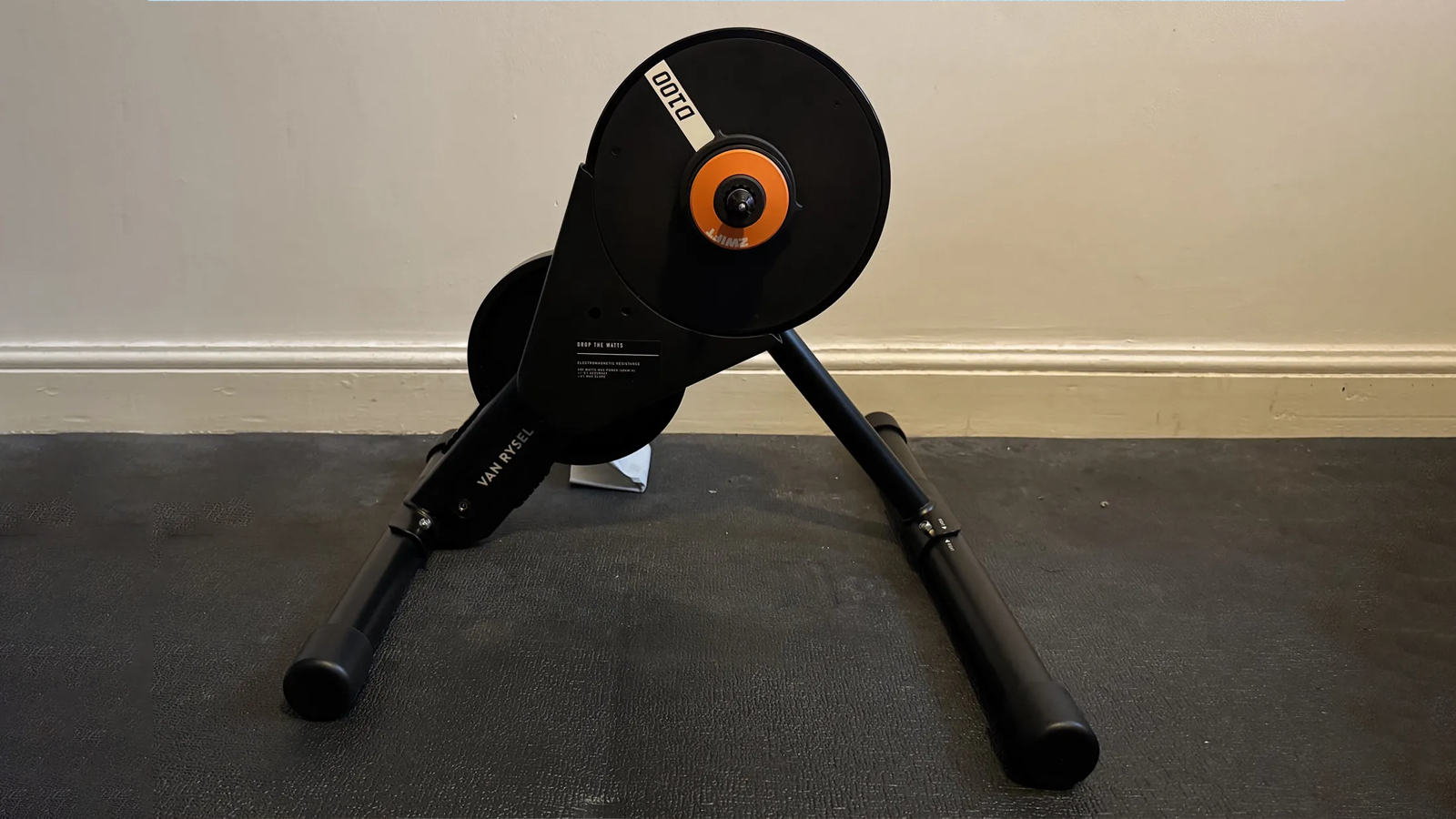Can the Tour de France be over before it's over? – Analysis
Tadej Pogačar is clearly in the driving seat at the end of the second week, but when is a race actually done?
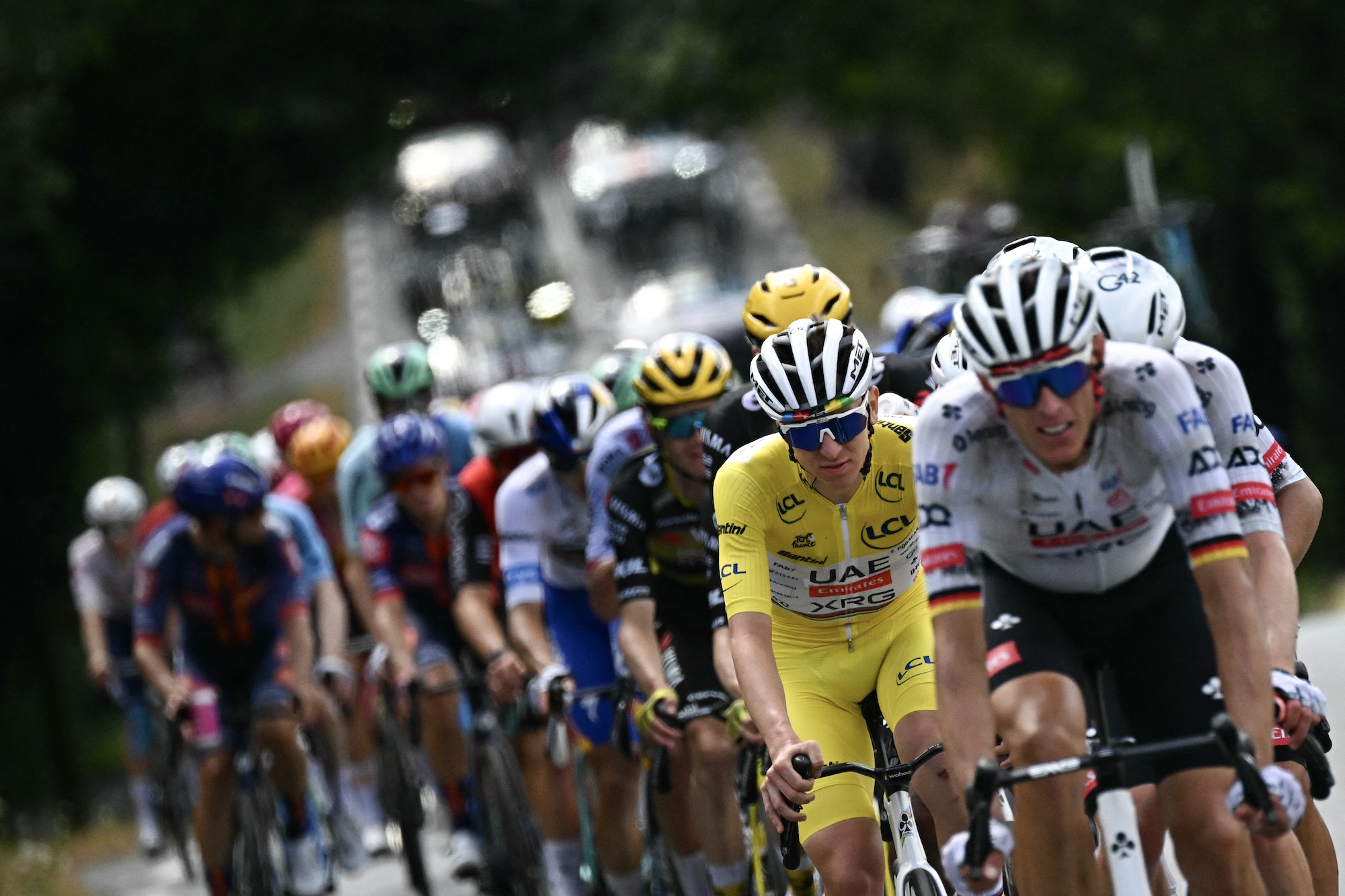
The Tour de France is over. I'm sure you've heard that refrain multiple times this week. You've also probably heard others say that it isn't over until it's over, that the Tour is long. So which is it?
Apologies for bombarding you with so many Tour clichés straight off the bat, but these questions – or assertions – have dominated discourse during this second week of the race, as three-time winner Tadej Pogačar has turned the advantage in week one to a seemingly unassailable lead at the end of week two.
After stage 15, Jonas Vingegaard is 4:18 down on Pogačar, with third-placed Florian Lipowitz almost eight minutes down. The deficits are big.
Now, I'm sure a lot of commentators will try to tell you that the GC isn't over, that everything could still change, and that's not really what I'm here to say. Of course, we would all like the battle for the win to continue – I'm here on the ground and I'll admit it would be nice to have some more fight-for-yellow action to talk about – but we also have to be realistic. And the reality is that Pogačar is most likely going to win his fourth Tour de France title in a week's time.
It's pretty hard to get around that fact. He has a very comfortable lead with six stages left, and he has looked consistently stronger than all of his competitors so far. His team has also looked the strongest in the race, and we know that he's a rider who isn't generally prone to cracking or otherwise making mistakes. When he has a lead, he usually keeps it.
However – and there is a however – I don't think any of this means that the Tour is over. Yes, we probably know who is going to win the race. If we're being totally honest, we probably knew that back in Lille, too. Pogačar's total dominance in the Pyrenees confirmed it physically and numerically, but there was never any real doubt about the world champion's strength.
So what is my point? Well, it's that this Tour – and all Tours – has always been about more than just the winner. We weren't ever expecting an all-out GC fight between five riders, were we, so is it really a disappointment or shock that this hasn't happened?
The latest race content, interviews, features, reviews and expert buying guides, direct to your inbox!
What's more, the GC race is the most important part of the Tour de France, but it's also not the only one. There's a reason why the peloton isn't just made up of GC riders and domestiques, and that's because there is more to the Tour.
What did we learn from the Pyrenees?
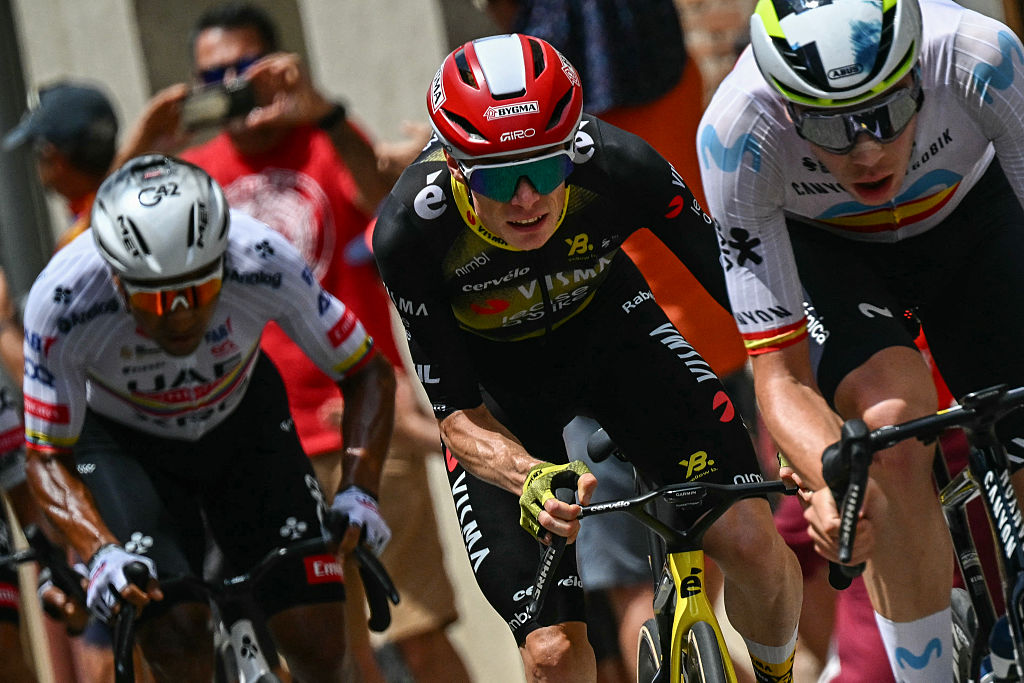
That Pogačar is the strongest, yes. Two stage wins and a lot of time gained, it was a good trip to the southwest for Pogačar. But we also learnt that there are many other motivated riders in this race, who aren't just bowing to the Slovenian.
The top of this list, of course, is Jonas Vingegaard. Whilst he is down, it is very clear that he and Visma are not out. They know as well as we do that Pogačar is stronger than the Dane, and probably that UAE are stronger than them. But that's not stopping them (and it shouldn't stop us, either).
On Saturday's stage, Vingegaard kept attacking Pogačar, after his teammates were up the road trying to win a stage, something they've said is now an added focus, since the overall win seems unlikely.
For a team, a stage win might seem like trying to salvage something from a race, but for the individuals who might do it – Matteo Jorgenson, Sepp Kuss, Wout van Aert – such a win would be important. We have to remember that this is the Tour de France, and things we might call failures or consolation prizes can, in fact, be the most special days of riders' careers.
And even for Vingegaard, it is extremely clear that he is not just giving up or sitting on, he is going to keep fighting. That may mean he loses by only two minutes instead of four, or he might slip back even further, but his unwillingness to just yield is something to be enjoyed.
Even when one is ahead in GC, Pogačar and Vingegaard remain the closest and most exciting climbing rivalry we've seen in the last ten years. You're not going to catch me not getting excited about that – when they're going head to head, it's the spectacle that compels me, not thoughts of the GC gaps.
We also learnt this week that the rest of the general classification is very much open, and after Remco Evenepoel's abandon, the fight for the podium is especially alive, and could be the hottest battle of this race.
At the moment, Florian Lipowitz (Red Bull-Bora-Hansgrohe) is in third, and he does look like the third strongest rider in the race, but there are question marks. Mainly, how far can he go in the final week of a Tour? He's never done this race before, and the final mountains are historically where riders crack.
But close to him is Oscar Onley (Picnic PostNL), who many – including probably himself – have been anticipating a bad day for, but it's not come yet. And in fifth is the heroic Kévin Vauquelin (Arkéa-B&B Hotels), having his best year yet and finding 10 extra watts from the fervent support France is putting behind him. A young French starlet holding on to finish in the top five would be such a special moment in this race. His Tour is certainly not over, nor is Onley's, nor is Lipowitz's.
And finally, as much as we, as viewers, might be thinking there's nothing left to battle for in the fight for yellow, that's not something the riders will ever tell you. Even for Pogačar, it's an effort every day to get through this Tour, especially with things like the high speeds, higher temperatures, and general chaos. Even now with his four-minute lead, it would be impossible to just cruise to the win. That's not how the Tour works.
There are always stories
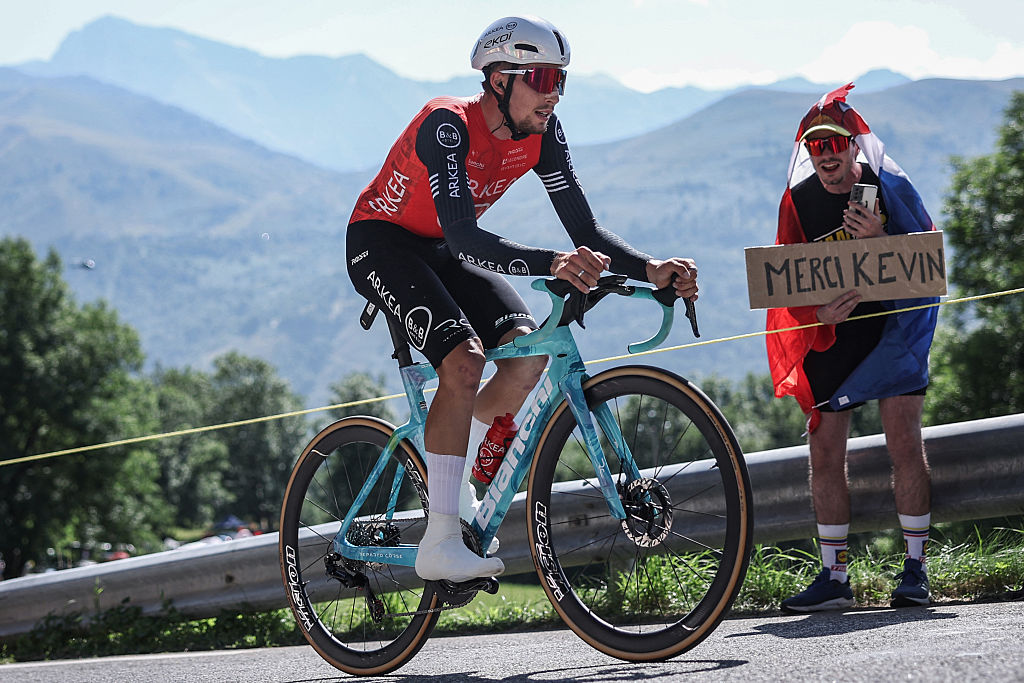
Even if you disagree with me entirely and the GC fight is decidedly over for you, and the battle for third isn't interesting enough, it is honestly a disrespect to the rest of the race to write off what is still to come. Even if the podium stays the same until Paris, there are still six stages, some stunning mountains, and 950km left in this race.
I'm not going to bore you with the 'Pogačar would fall off his bike' line, but I am going to tell you how an all-out battle could ensue on Mont Ventoux, a summit finish we haven't seen in nine years, or how a surprising name could take the biggest win and cry his way through his post-race interview, or how a young rider could muster everything they have to step onto the podium on the Champs-Élysées.
There are many, many reasons why we watch cycling, and most of them are to do with the above – the moments, the battles, the emotions – not just to find out who wins at the end of three weeks. And in that respect, the Tour is nowhere near over. There are so many things still to come, and it will really only be over once I wake up on Monday and don't have a bike race to go to.
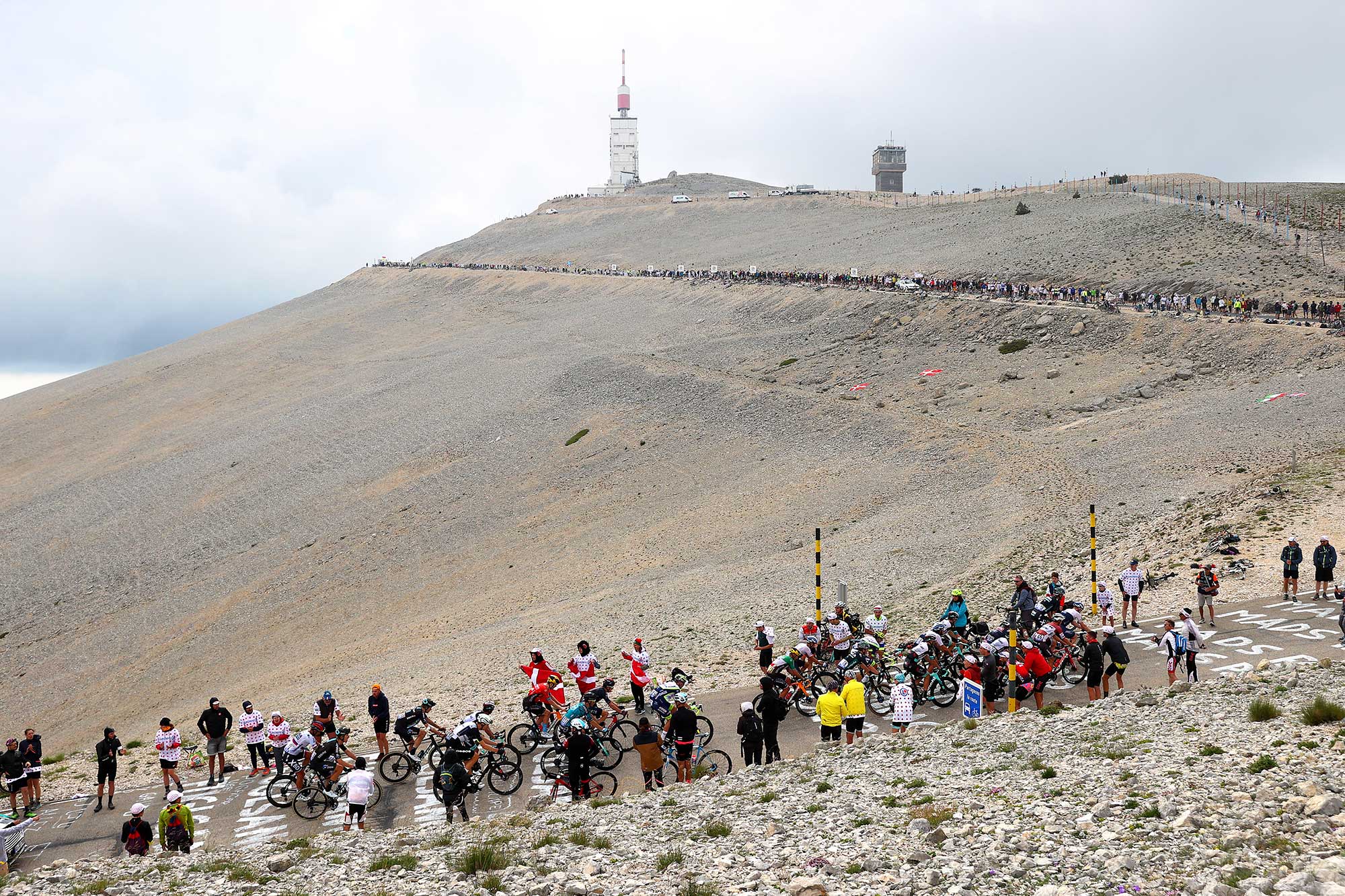
The Tour de France is the biggest race in cycling, and a Cyclingnews subscription offers you unlimited access to our unrivalled coverage. Get all the breaking news and analysis from our team on the ground in France, plus the latest pro tech, live race reports, and a daily subscriber-only newsletter with exclusive insight into the action. Find out more.
Matilda is an NCTJ-qualified journalist based in the UK who joined Cyclingnews in March 2025. Prior to that, she worked as the Racing News Editor at GCN, and extensively as a freelancer contributing to Cyclingnews, Cycling Weekly, Velo, Rouleur, Escape Collective, Red Bull and more. She has reported from many of the biggest events on the calendar, including the Giro d'Italia, Tour de France Femmes, Tour of Flanders and Paris-Roubaix. She has particular experience and expertise in women's cycling, and women's sport in general. She is a graduate of modern languages and sports journalism.
You must confirm your public display name before commenting
Please logout and then login again, you will then be prompted to enter your display name.
